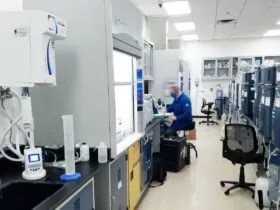Technology has become an integral part of modern healthcare, allowing medical professionals to provide better care and make healthcare more accessible and efficient to patients. In this blog, we will explore the role of technology in healthcare and how it has revolutionized the way healthcare is delivered and managed today. Keep reading to learn more.
Medical technology for data aggregation to support decision-making in a regulatory industry is becoming more and more commonplace. With the vast quantity of data available, it’s essential to have a system in place that can help make sense of it all. This is where medical technology comes in. Using medical technology, data can be gathered and sorted in a way that makes it useful for decision-making.
Medical technology has a significant role in strategic decision-making by regulatory agencies. By aggregating data from across the healthcare system, workflow automation and predictive analytics can help agencies identify patterns and trends that may not be apparent from individual data points. This information can then be used to support policymaking and strategic planning.
For example, by analyzing data on prescription drug use, a regulatory agency could identify patterns of abuse or misuse. This information could then be used to develop policy or regulatory initiatives to address the problem. Similarly, by analyzing data on hospital admissions, a regulatory agency could identify areas where policy changes could result in reduced healthcare costs.
Medical technology can also help regulatory agencies to track the impact of their decisions. For instance, by analyzing data on pharmaceutical sales, a regulatory agency could track the effect of a new policy on the market. This information could help to inform future decision-making.
There are several different medical technologies that can be used for data aggregation. One of the most common is electronic health records (EHRs). EHRs are a system of recording patient data in a digital format. They can help to improve the quality of care, make the healthcare system more efficient, and reduce costs.
Another medical technology that can be used for data aggregation is medical imaging. Medical imaging is the process of creating images of the inside of the body. This can be done with X-rays, ultrasound, and MRI scans. Medical images can be used to diagnose medical conditions, plan treatments, and evaluate the progress of treatments.
Medical technology is essential for regulatory agencies, enabling them to make informed, strategic decisions that improve the healthcare system.
How can you earn a degree in the medical technology field?
The instructional design and technology field has become essential to society’s most vital areas. The online Masters in Instructional Design and Technology program provides students with the skills and knowledge to develop, manage, and deliver instructional content and curricula for healthcare professionals. The curriculum covers various topics, including instructional design, technology-based instruction, e-learning, and healthcare communication.
What is the role of technology in healthcare?
Technology has come to play an important role in society’s most vital areas. In healthcare, technology has allowed for tremendous advancements in diagnosing and treating illnesses. It has also improved the overall quality of care that patients receive. In addition, technology has had a significant impact on the way healthcare is delivered.
One of the most significant ways technology has impacted healthcare is through medical devices and diagnostic tools. These tools allow doctors to diagnose illnesses and determine what treatments are needed more accurately. They also allow for earlier diagnosis and treatment of conditions, which can lead to better outcomes.
Another meaningful way that technology has impacted healthcare is through the development of informatics systems. These systems allow doctors and other healthcare professionals to store and access patient information electronically. This makes it easier to track patient history and allows for faster information sharing between caregivers. In addition, informatics systems can help doctors identify potential health risks based on large data sets.
Technology plays an essential role in society’s most vital areas. It helps to improve communication, productivity, and efficiency.





























